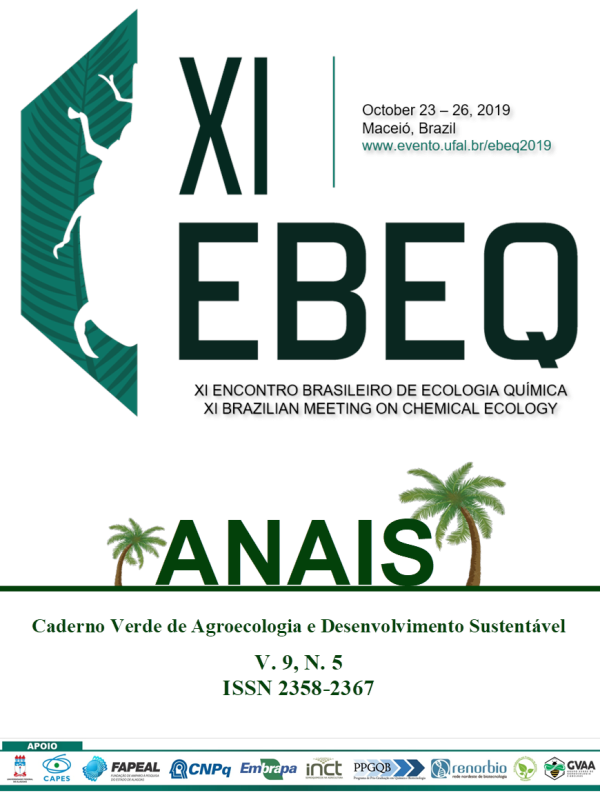COCO PRODUCTION CHALLENGE IN BRAZIL: LIMITS AND PERSPECTIVES
Keywords:
COCO PRODUCTION, CLIMATE CHANGE, NORTHEASTAbstract
Coconut palm, a typical tropical climate crop, is grown in about 90 countries. In Brazil, the cultivation of coconut grows mainly along the coast, is found from Pará state until Espirito Santo state. The Northeast Region is the main national producer of coconut, whose position has been conquered since the introduction of the coconut tree in the country and that is still being maintained due to the favorable edaphoclimatic conditions in the coastal zones. It has both social and economic importance, assuming an important position as employment and income-generating activity of man in the field. Unlike the main targeting of the world's largest producers, Brazilian crops are intended for the production of fresh dried coconut, shredded coconut, coconut milk, coconut oil, and coconut water . The growing demand for this last product has contributed to the expansion of the coconut tree to other regions and the increase of productivity and production in the last decades. However, its cultivation in the Brazilian Northeast has been going through problems. The aim of the study was analyze the problems related to coconut production in Brazil and the prospects to circumvent the current situation with special focus on the northeast region of Brazil. In recent years, the Brazilian plantation area has been gradually decreasing, Brazilian production has been maintained at around 1,900 million fruits, falling since 2015. Factors such as climate change and pests have challenged crop production in the country.Downloads
Additional Files
Published
How to Cite
Issue
Section
License
Termo de cessão de direitos autorias
Esta é uma revista de acesso livre, em que, utiliza o termo de cessão seguindo a lei nº 9.610/1998, que altera, atualiza e consolida a legislação sobre direitos autorais no Brasil.
O(s) autor(es) doravante designado(s) CEDENTE, por meio desta, publica a OBRA no Caderno Verde de Agroecologia e Desenvolvimento Sustentável, representada pelo Grupo Verde de Agroecologia e Abelhas (GVAA), estabelecida na Rua Vicente Alves da Silva, 101, Bairro Petrópolis, Cidade de Pombal, Paraíba, Brasil. Caixa Postal 54 CEP 58840-000 doravante designada CESSIONÁRIA, nas condições descritas a seguir:
O CEDENTE declara que é (são) autor(es) e titular(es) da propriedade dos direitos autorais da OBRA submetida.
O CEDENTE declara que a OBRA não infringe direitos autorais e/ou outros direitos de propriedade de terceiros, que a divulgação de imagens (caso as mesmas existam) foi autorizada e que assume integral responsabilidade moral e/ou patrimonial, pelo seu conteúdo, perante terceiros.
O CEDENTE mantêm os direitos autorais e concedem à revista o direito de divulgação da OBRA, com o trabalho simultaneamente licenciado sob a Licença Creative Commons do tipo atribuição CC-BY.
O CEDENTE têm autorização para distribuição não-exclusiva da versão do trabalho publicada nesta revista.
O CEDENTE têm permissão e são estimulados a publicar e distribuir seu trabalho online (ex.: em repositórios institucionais ou na sua página pessoal) a qualquer ponto antes ou durante o processo editorial, já que isso pode gerar alterações produtivas, bem como aumentar o impacto e a citação do trabalho publicado.








